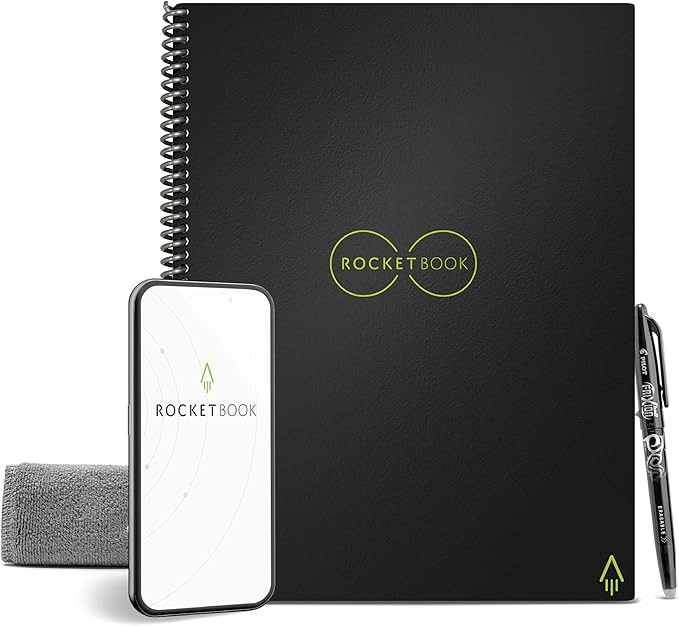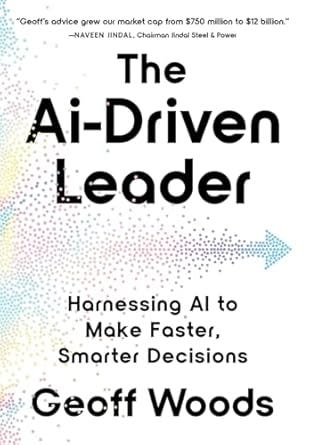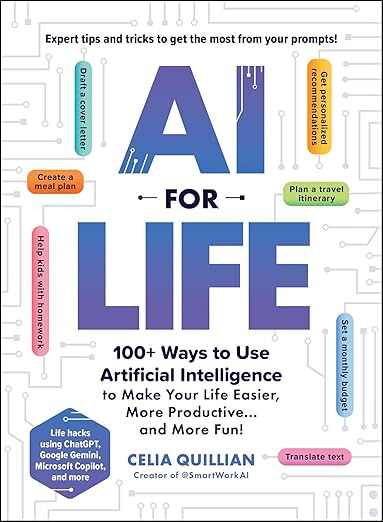How AI Tools Can Help You Manage Your Money!
🤖 The advantages and disadvantages of using AI with your finances
Here’s what to expect in this newsletter!
(P.S. If this newsletter is cut off in your email just visit our Substack!)
📰 Interesting financial news: Stay up to date on what’s happening in the economy.
📈 What’s popping in the stock market: The 411 on trending/interesting stock market news.
📝 This week’s main topic: What this newsletter’s title is about!
🥰 Team CGF’s Amazon favs: Affordable yet helpful Amazon finds.
📰 Interesting financial news
The U.S. Department of Education will restart the process of involuntary collections, including wage garnishments. What this means.(NBC)
Your Social Security card will soon be available digitally. What to know. (CNBC)
US consumer confidence plummets to Covid-era low as trade war stokes anxiety. (AP News)
📈 What’s popping in the stock market
Google tanks, dragging market lower, after Apple says it’s considering adding AI search in its browser. (Ticker Symbols: GOOGL, AAPL)
Disney lifts profit outlook after delivering solid parks, streaming results. (Ticker Symbol: DIS)
📝 Main topic: Ways to Leverage AI tools to Help You With Your Money
Managing money can be overwhelming, even with the right tools. How do you know which budget is right for you? Should you cut back on coffee or cancel your Hulu subscription? Where do you even begin to tackle debt?
Even though there are many financial resources out there, sometimes you need a little more support. Enter Artificial Intelligence aka AI (e.g chatGPT, Google Gemini, AI built into financial tools and apps etc)
According to MarketsandMarkets, AI holds an 18% market share within the financial sector. It can process transactions faster, protect against fraud, and assist in risk management.
6 Ways to use AI tools
If you're wondering how AI can help you, here's a closer look at how these tools can make managing money a little easier. We've included insights and real-life examples to help you get the full picture.
1. Create a better budget
You’ve probably heard of zero-based budgeting or the 50-30-20 budget. But how do you know which budget is best for you? AI can help you decide. By entering your income, expenses, and financial goals, you can ask AI to create different budgets tailored to your financial situation.
Finding the right budget for your lifestyle with AI’s help
In the past, I struggled with budgeting because of my fluctuating income. Recently, I’ve used AI to help me choose a budgeting method that fits my unique situation.
It suggested the Bucket Method, which focuses on putting money into different categories based on expenses. It also recommended zero-based budgeting, which ensures every dollar has a specific purpose.
By inputting my income and expenses, I could see a breakdown of these budgeting methods and decide which one to use.
The only drawback I encountered was when it suggested using my previous month’s income for the current month. However, some of my income last month was a one-time payment, which mean this advice isn’t applicable for me. So I chose to use my projected income based on my current clients.
Analyzing your current financial situation while reviewing AI’s suggestions
Let’s say you already have a budgeting method that works for you but still find yourself falling short of your savings goals. You can input your budget details into AI and ask it to identify spending patterns, suggest areas to cut expenses, and analyze your cash flow.
If you have a new expense coming up, AI can also help you adjust your budget accordingly.
Remember to always double-check any calculations generated by AI. Additionally, always adjust your budget based on your personal needs.
For example, AI might suggest cutting back on eating out. But maybe you travel a lot for work so cooking at home isn’t always an option.
While AI can help you spot pitfalls you might have missed, you make the decisions about your money.
2. Fine tune your debt repayment strategy
Debt is a heavy burden to carry, but AI can help you lighten the load.
You may already be familiar with the two most common debt repayment strategies. The avalanche method, which tackles the debts with the highest interest rates first, and the snowball method, which focuses on paying off the smallest debts first.
Yet how do you know which one is right for you? And how can you adjust your budget to help you pay down debt more effectively?
AI tools can analyze your debt and overall financial situation to help you come up with a payment plan that fits your needs.
Additionally, AI tools can help you search for better interest rates and even assist in negotiating bills so you can pay off your debt faster.
Tips on using AI to create a debt repayment plan
If you’re ready to tackle your debt but are struggling to come up with a plan, here are a few ways you can use AI:
Enter your debt information and ask for a breakdown comparing the avalanche vs. snowball methods.
Input your budget and ask AI to calculate how much extra money you can put toward your debt.
Ask AI to create a personalized monthly debt repayment plan.
Use AI to help set up automatic payments toward multiple debts.
Have AI calculate how long it will take to pay off specific debts based on different payment amounts.
While AI can support you in many ways, it’s still important to keep these best practices in mind:
Limit how often you use debt or take out new loans.
Consider consolidating your debt by transferring balances to a low- or zero-interest credit card.
Work with a certified debt counselor if you’re struggling to make payments consistently.

3. Get help with making financial decisions
Say you have a financial goal in mind but don’t know how to get started. Or maybe you’ve just read a financial article but still have some questions. You can use AI to help you fill in the gaps.
I enjoy using AI to simplify complex topics around investing, banking systems, and choosing the right credit card.
Saving money with AI
Let’s say you have a goal to save $5,000. With AI, you can input your income and expenses and ask for suggestions on how to reach that goal. When I entered by savings goals AI gave me the following suggestions:
A step-by-step savings plan
Ideas on how to reduce expenses
Ways to increase income
A timeline to achieve this goal based on how much I can save monthly
It even created a bar graph for visual reference.
What-if scenarios
A fun way to use AI is through “what-if” scenarios. For example, you can ask AI questions like:
What if I get a raise—how would that affect my budget?
What if I paid $200 more toward my loan each month?
What if I moved to a cheaper city?
What if I downsized my apartment or got a roommate?
These scenarios can help you explore different outcomes before making a big financial decision.
Comparison shopping
When it comes to shopping for new insurance, a different phone plan, or even the right credit card, AI tools can help you find the best options.
These tools don’t just compare prices, they evaluate features and value, and can recommend plans that fit your budget.
4. Protect yourself from fraud and other security risks
More than just an assistant, AI can act as your security guard when it comes to your finances.
While regularly checking your accounts is a good financial habit, it's impossible to monitor every single transaction all the time. With AI security, you have a system keeping an eye on your bank account when you can't.
AI can detect unusual charges, suspicious activity, and other anomalies.
Password protection
I don’t know about you, but I hate thinking of passwords. I struggle to come up with odd combinations of letters and numbers that I won’t forget.
Fortunately, AI-powered tools can help create and manage complex passwords. They can also suggest stronger alternatives.
Keep in mind that hackers can also use AI to crack passwords by running multiple possibilities. Always make sure to use a trusted password management system.
5. Better understand your taxes
I never understood why I learned trigonometry in school but not how to do taxes. Since starting employment in my twenties, I’ve struggled to understand taxes. Especially when shifting from working a 9-to-5 to becoming an entrepreneur, taxes went from an annoyance to a full-on nightmare.
Fortunately, over the past few years, I’ve used some online tax tools that leverage AI to help me file. These tools often ask common questions that don’t require a degree in economics to understand. There are also helpful prompts, and if I’m unsure about a financial term, AI can simplify the definition.
Some other ways AI can help with taxes include:
Tracking business expenses
Checking for errors
Giving instructions on how and when to file
Identifying deductions
When using AI tax tools, I always look for options that offer access to a human tax expert. I’ve found that while AI can solve some problems, others are best left to an experienced human professional.
6. Wealth management assistance with AI
With your taxes figured out, you now have time to focus on other financial areas such as estate planning and wealth management. AI can help you to create an estate plan for your financial advisor to review. It can also look for wealth growing opportunities and help you focus on long term investments such a retirement.
Risks and limitations of AI in finance
Hopefully, you’re starting to feel like AI can be your sidekick in managing your finances. Before you dive in, here are some important things to consider:
Don’t rely solely on AI
It’s easy to go down the rabbit hole with AI—especially with generative AI or chatbots. They’ll keep asking if you need help with this or that, and before you know it, your brain has checked out and AI is doing all the work.
The thing is, AI is only a tool. Like any tool, it’s great for many things, but not for everything. AI only knows a portion of your life. If you rely on it too much for your financial decisions, you may end up making choices that leave you stuck or in financial distress.
Security risks with AI
Many AI tools require you to input sensitive financial information. One of the biggest risks is potential data breaches, data processing issues, and unauthorized data sharing.
That’s why it’s important to use AI systems that you trust. You can also ask questions and research how different AI tools work so you understand how your data is being used.
Bias in AI
As we know, finance isn't black and white. Your financial situation includes your income, economic status, ethnicity, location, and other personal factors.
AI may not be culturally aware or sensitive to your unique circumstances. Many tools are subject to the same stereotypes and biases that humans face. If the creators of an AI system aren't aware of their own biases, it can lead to tools that unintentionally perpetuate discrimination.
- - -
AI is a powerful resource that can help you move forward financially. Remember that your financial education and knowledge are key to navigating different AI tools effectively.
Likewise, AI cannot replace financial educators, coaches, and advisors who bring years of personal and professional experience. We encourage you to use AI to help organize your finances, explore new ideas.
When it comes to more in depth and personalized support, you can always speak with one of our financial coaches to help you make decisions that are right for you.
🥰 Team CGF’s Amazon Favs: AI guides and digital notebooks: Tools to simplify your life
Over the years, humans have gone from using phones connected to the wall to phones you can carry in your pocket and take pictures with. We’ve moved away from bulky box televisions to sleek flat screens.
Technology is constantly advancing, now more than ever, especially with AI. The great thing about these advances is that they can make our lives easier—if we know how to use these tools.
Stay ahead of the learning curve with these guides and devices.
P.S. If you make a purchase, we may earn a commission. This helps us grow!
Rocketbook Core Reusable Spiral Notebook

Whether it’s keeping a spending journal, writing out your budget, or jotting down financial goals, journaling about your finances has a certain appeal.
Yet writing everything down in a physical notebook does have limitations. It can be hard to keep things organized. Plus, physical notebooks have limited pages. Once you fill up one notebook, you have to start a new one. This can cost you more money and create a clutter of notebooks.
There’s also the annoyance of flipping through pages to find the notes you wrote a week ago. And, god forbid, you lose or misplace your notebook.
If you love note-taking but are struggling with keeping a physical notebook, then it’s time to try a digital notebook like the RocketBook.
With the Rocketbook, you can write down all your finance notes, scan the page with the app, and upload a virtual copy to the cloud. With virtual storage, you can keep all your notes on your budget, expenses, and business ideas organized and easy to locate.
At the end of the day, you can wipe the page clean and start fresh the next morning!
The AI-Driven Leader: Harnessing AI to Make Faster, Smarter Decisions

With the rise of AI, many people fear being replaced by technology. But if you want to excel in business, the key isn’t to fear AI—it’s to understand it.
If you’re someone that wants to stay on top in the business and tech world then pick up a copy of The Ai-Driven Leader. This book will teach you how to harness AI to make better decisions, increase the impact of your team, process data faster, and get immediate results by leveraging smart tools.
Get more done in less time and rise above the competition with The Ai-Driven Leader.
reMarkable 2 – The Original Paper Tablet

You’ve been thinking about getting a digital notebook for all your note-taking needs. But you don’t like the idea of writing on a screen. You love the feel of a ballpoint pen gliding across paper. You like the ease of jotting down ideas as they come, without worrying about technical malfunctions.
Fortunately, reMarkable 2-The Original Paper Tablet can give you the perks of a digital notebook but feel like you’re writing on paper.
Also known as The Paper Tablet, this ultra-thin, 4.7 mm device is great for note taking and also serves as an e-reader.
Whether you’re tracking spending, planning your budget, or journaling about a recent purchase, you can focus completely. The tablet doesn’t come with an app store or notifications, allowing for peaceful, distraction-free note-taking.
With up to two weeks of battery life, you won’t have to worry about a low battery interrupting your writing flow.
And with the ability to convert handwritten notes into text and PDFs, the reMarkable 2 is one of the easiest ways to keep your thoughts and your finances organized.
AI for Life: 100+ Ways to Use Artificial Intelligence to Make Your Life Easier, More Productive…and More Fun

Now you know how AI can make managing your finances easier. You may be thinking, what other ways can I use AI to enhance my life?
Introducing AI for Life, the ultimate beginner-friendly guide to mastering AI without the confusion. Filled with 100 ready-to-use prompts and ideas, this book will help you master AI with ease.
If you struggle with productivity or organization, AI is a simple solution to many administrative problems.
The best part about this book is that it teaches you how to use AI to make your life more enjoyable.
No need for tech jargon or a degree in engineering—this book will show you how to use popular and free AI tools in your everyday life.





This is great information!!